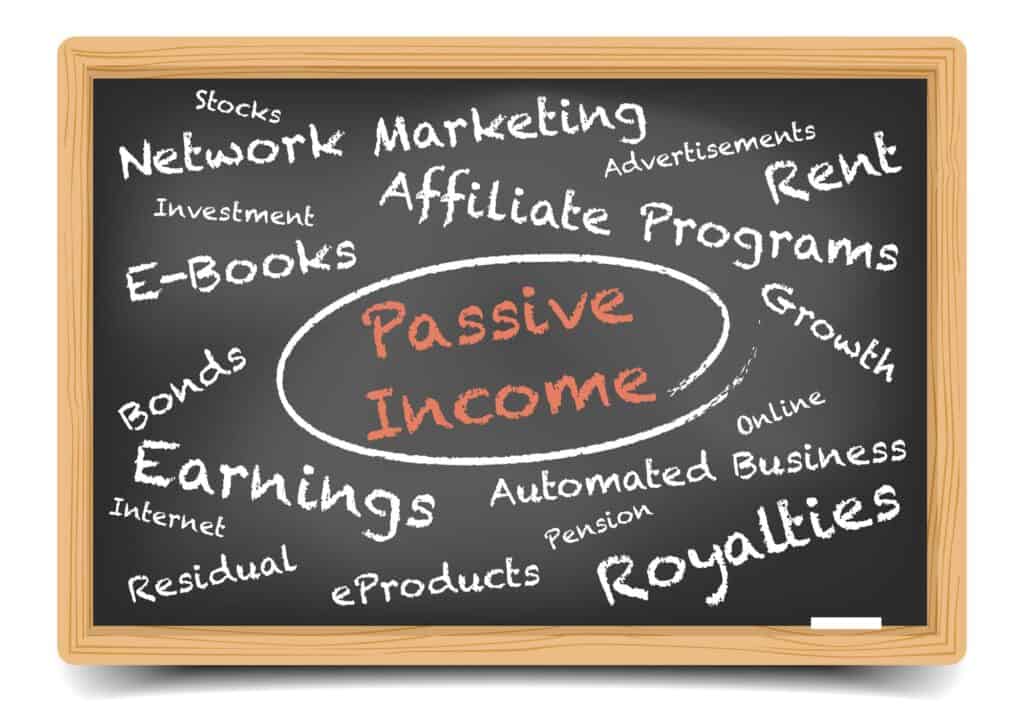As we delve into the world of real estate investing and passive income, we encounter a revolutionary model known as real estate crowdfunding. This model has emerged as a beacon for investors, displaying novel ways to partake in property ventures, even for those with relatively modest capital. By pooling our resources together, real estate crowdfunding enables us to collectively sponsor ventures and hold stakes in potential lucrative property investments. Now, let’s break down real estate crowdfunding explained, demystify how does real estate crowdfunding work, and look at why it is reshaping the landscape of investment opportunities.
Disclaimer: This information is general in nature and for informational purposes only. It is not personal financial advice and has not taken into account your personal financial position or objectives. Make sure to refer to a licensed financial or tax advisor.
At its core, real estate crowdfunding investment is about inclusivity and shared success. It’s about harnessing the power of the many to back property investments that were once the playing field of the few. As a result, we find ourselves capable of earning real estate crowdfunding returns, which harmonize with both our contributions and expectations. With each shared success story, we realize the power of joint investment—and the potential it has to transform our portfolios and possibly, our financial futures.
Table of Contents
Key Takeaways
- Real estate crowdfunding allows individuals to invest in property with smaller amounts of capital.
- Investors earn returns proportional to their investment, akin to traditional equity investing.
- Crowdfunding leverages online platforms and social media to pool resources effectively.
- Legislative changes have facilitated opportunities for nonaccredited investors.
- Understanding regulatory nuances is key to maximizing crowdfunding benefits.
- Investments can yield income from rental properties or proceeds from property sales.
Demystifying Real Estate Crowdfunding
As we explore the burgeoning landscape of property investments, our goals align with shedding light on the intricate mechanisms of a real estate crowdfunding platform. The advent of this investment route has opened new doors, providing a myriad of benefits and an alternative to traditional property investment models. Its effectiveness lies in the collective effort of individuals who share a common interest in the real estate market yet may not have substantial capital at their disposal.
What is Real Estate Crowdfunding?
At its core, real estate crowdfunding is a collaborative financial model that connects a diverse array of investors to real estate projects. By leveraging the power of the internet and social media, this approach democratizes the property investment process, allowing even those with limited funds to participate in potentially lucrative deals.
The Emergence of Crowdfunding Post-JOBS Act
Following the implementation of the JOBS Act, significant regulatory adaptations, such as Rule 506(c) and Regulation A+, have catalyzed the real estate crowdfunding process. These updates have not only made opportunities more accessible but have also simplified the ways in which one can contribute to and benefit from the real estate market.
Exploring the Real Estate Crowdfunding Process
The procedure for engaging in a real estate crowdfunding venture is rather straightforward: investors purchase shares of specific property investments and reap the benefits based on the financial performance of these properties. This is a clear cut distinction from conventional investing approaches such as direct property ownership or investing in Real Estate Investment Trusts (REITs).
- Benefits of real estate crowdfunding include diversified investment portfolios
- Lower financial barriers to entry
- Access to markets previously dominated by institutional investors
When comparing real estate crowdfunding vs traditional investing, one cannot ignore the distinct advantages it offers, particularly when it regards inclusivity in investment opportunities and reduced financial barriers.
| Criteria | Real Estate Crowdfunding | Traditional Real Estate Investing |
|---|---|---|
| Capital Requirement | Typically lower | Significantly higher |
| Investment Accessibility | Open to both accredited and nonaccredited investors | Often limited to accredited investors or those with substantial capital |
| Management Obligations | Managed by the crowdfunding platform | Requires direct management by investors |
| Property Ownership | Fractional through shared investment | Direct and full ownership |
| Liquidity | Generally lower due to investment terms | Depends on market conditions |
In sum, as we delve deeper into the intricacies of real estate crowdfunding, we find a burgeoning investment method that challenges the traditional channels while presenting distinct benefits that cater to a more diverse investor base.
How Does Real Estate Crowdfunding Work
When we talk about real estate crowdfunding investment, we’re referring to an innovative approach to property financing. Essentially, real estate crowdfunding explained is the collective effort of individual investors to pool their capital via online platforms, targeting lucrative property deals. This medium has transformed the way we engage with real estate, enabling participation and returns accessible to a broader public.
For instance, imagine being able to invest in a high-rise condominium project with as little as $1,000. That’s what real estate crowdfunding platforms enable today. These platforms function under strict SEC regulations, determining how does real estate crowdfunding work – including who can invest and the maximum they can invest based on their financial situation.
The beauty lies in the simplicity of the process. You select a property, invest your preferred amount, and if the property performs well, you see returns. These returns are often distributed either from rental income, refinancing, or sale of the property, directly proportional to your investment size. Here’s a closer look at the potential real estate crowdfunding returns you can expect:
| Investment Amount | Projected Yearly Returns | Type of Return |
|---|---|---|
| $1,000 | 5 – 12% | Rental Income |
| $5,000 | 8 – 15% | Rental Income + Equity Growth |
| $10,000 | 10 – 20% | Rental Income + Equity Growth + Refinancing |
New regulations, like Regulation CF, have positively impacted our community. They increase the investment ceilings and democratize the arena for real estate crowdfunding investment, especially for nonaccredited investors who previously might have found the real estate market impenetrable.
Our role in this is akin to being part of a large investment firm but without the complexities or heft of being a key financier. We stand to gain the benefits of being property shareholders, but the risks are spread and the responsibilities of property management and upkeep are taken on by experienced property developers and managers.
The Growing Landscape of Real Estate Crowdfunding Platforms
As we explore the burgeoning field of real estate crowdfunding, a variety of platforms have emerged, each offering unique opportunities and approaches to real estate crowdfunding investment. These platforms vary in their modes of operation, target investor profiles, and the types of returns they offer. For investors, it’s crucial to understand the specific characteristics and real estate crowdfunding risks before committing capital to a project.
Fundrise: A Doorway for Non-Accredited Investors
Fundrise has positioned itself as a premier real estate crowdfunding platform that caters to a wide spectrum of investors. Its accessible model is particularly appealing to nonaccredited investors, giving them the chance to engage with both residential and commercial property investments.
RealtyMogul and the Diversification Opportunity
Investors looking to dissipate risk through diversification may find RealtyMogul’s offering of a variety of REITs appealing. RealtyMogul emphasizes the opportunity to build a broad real estate portfolio, ultimately impacting the potential for consistent real estate crowdfunding returns.
CrowdStreet’s Approach to High ROI Projects
Focusing on projects with a potentially high Return On Investment, CrowdStreet appeals to individual investors seeking robust commercial real estate opportunities. Its stringent project selection process serves as a reassuring filter for quality investments.
Yieldstreet: Asset-Backed Investment Options
Yieldstreet broadens the horizon for accredited investors by offering asset-backed real estate investment options, providing an alternative to traditional equity investments and focusing on delivering solid asset-backed securities to its clientele.
To offer a clearer insight into how these platforms differ, let’s examine them side by side.
| Platform | Investor Type | Investment Focus | Minimum Investment | Liquidity Options |
|---|---|---|---|---|
| Fundrise | Both Accredited and Nonaccredited | Residential & Commercial | $500 | Quarterly Redemption |
| RealtyMogul | Accredited | Diversified REITs | $1,000 | Varies by Project |
| CrowdStreet | Accredited | Commercial (High ROI) | $25,000 | Depends on Specific Offering |
| Yieldstreet | Accredited | Asset-Backed Securities | $10,000 | Varies by Asset Class |
Amidst the appeal of accessible and diversified investments, it is paramount for us as investors to conduct due diligence on each real estate crowdfunding platform and be aware of how they align with our investment goals and risk tolerances.
Real Estate Crowdfunding versus Traditional Investing
The investment universe has been markedly revolutionized by the emergence of real estate crowdfunding, a method that contrasts starkly with traditional real estate investing. While the latter has long been the dominion of individuals possessing substantial means, the former has redefined the approach to property investment by lowering the barriers to entry and broadening the investor demographic.
Real estate crowdfunding vs traditional investing invites a compelling discussion—one where the disparities are evident. Traditional investing requires more than just funded wallets; it necessitates a hands-on approach and a readiness to undertake significant management responsibilities. Crowdfunding, on the other hand, allows us to revel in the benefits of real estate investments while bypassing exhaustive capital and active management.
One of the pivotal benefits of real estate crowdfunding is its inclusivity. Recent regulatory shifts have cast aside the constraints that once reserved property investing for a select few. Now, a wider segment of the population can consider dabbling in real estate markets, something that was once a distant prospect for many. Diversification, ease of access, and partial ownership are hallmarks of this investment approach, allowing us to reap the rewards of real estate ventures beyond geographical and financial limitations.
Yet, while we champion the expansion of investment horizons, it’s imperative that we also scrutinize the real estate crowdfunding risks. Issues such as liquidity concerns—a result of the long-term nature of property investments—and the complexities associated with managing numerous investors are inherent in the realm of crowdfunding. The novelty of the platforms themselves can also be a risk factor, as their track record may not be as established as the traditional real estate firms we are accustomed to dealing with.
- Accessibility: Crowdfunding democratizes investing, slashing the need for hefty upfront capital.
- Diversification: Offers a portfolio spread across different properties and locations.
- Ease of Use: Investing can be done entirely online, simplifying the process remarkably.
- Liquidity: Compared to stocks, real estate is less liquid, making swift exits more challenging.
- Managerial Complexities: Handling a large pool of investors can complicate investment management.
- Market Fluctuations: As with all investments, real estate markets can be unpredictable and affect ROI.
As we navigate the investment terrain, it’s essential that we weigh these factors—celebrating the access facilitated by real estate crowdfunding while remaining vigilant to the risks it presents. The goal is to forge a balanced path where the rewards of such investments are maximized, and the pitfalls smartly circumnavigated.
Unlocking the Potential: Benefits of Real Estate Crowdfunding
As we delve deeper into the transformative world of property investment, real estate crowdfunding stands out as a beacon of innovation and accessibility. It’s reshaping the investment landscape, allowing those with an eye for growth to experience the robust advantages of real estate without the prohibitive costs typically associated with this asset class. By examining the pivotal benefits that real estate crowdfunding platforms deliver, we can appreciate how they democratize property investment and why they’re becoming a go-to choice for diversifying portfolios.
Access to a Wider Pool of Investors
The appeal of real estate crowdfunding investment lies in its unique ability to extend beyond traditional investor circles. When we talk about the benefits of real estate crowdfunding, the inclusivity it fosters simply cannot be understated. The digital nature of crowdfunding platforms empowers us to connect with a multitude of investors, breaking down geographic and economic boundaries, and pooling together a diverse array of resources and interests.
Lower Barrier to Entry for Property Investments
In our journey to make investments more approachable, crowdfunding initiatives have remarkably lowered the entry barriers. With some platforms allowing individuals to commence their investment journey from as little as $1,000, it’s evident that the path to engaging in property deals is no longer reserved for the affluent. The reduced financial threshold opens doors for many of us who previously viewed real estate as an out-of-reach aspiration.
The Inclusive Nature of Modern Investment Regulations
Recent regulatory reforms have played a pivotal role in nurturing the growth of real estate crowdfunding. These changes manifest the essence of how does real estate crowdfunding work within the framework of the JOBS Act, fostering an environment where both accredited and nonaccredited investors can partake. This inclusivity signifies a departure from the days when property investment was the exclusive realm of a select few with substantial wealth.
| Traditional Real Estate Investing | Real Estate Crowdfunding |
|---|---|
| High capital requirements | Accessible investment thresholds |
| Exclusivity to accredited investors | Inclusivity for all investor types |
| Geographic limitations | Global investor participation |
| Hands-on management needed | Passive investment opportunities |
| Limited diversification | Diverse portfolio options |
Understanding the benefits of real estate crowdfunding not only assures us of its potential but also affirms the transformative power of technology in finance. As we look to the horizon, real estate crowdfunding spells a future of collaborative, intelligent investment strategies that promise to reshape the landscape of property investment for years to come.
Conclusion
As we draw insights from the expanse of the real estate crowdfunding landscape, it’s imperative to acknowledge the delicate teeter-totter of potential gains against inherent uncertainties. Our collective effort in real estate crowdfunding necessitates a keen analysis of every potential venture. It is our prudence in assessing real estate crowdfunding risks that steers us clear of pitfalls, ensuring decisions are both judicious and informed.
Navigating the Risks and Rewards
In the vast sea of investment, real estate crowdfunding platforms are but one promising ship. By understanding the importance of thorough due diligence, being conscious of varied fees, and measuring the balance between anticipated real estate crowdfunding returns and possible detriments, we equip ourselves with the navigational tools needed for a prosperous journey. Remember, a judicious investor is one who proceeds with as much caution as enthusiasm.
Predicting the Future of Real Estate Crowdfunding Markets
Peering into the crystal ball of market trends, we are discerning witnesses to an extraordinary surge in this sector’s growth. Offering a vista of innovation and inclusivity, the trajectory of real estate crowdfunding market growth is poised to reshape the investment horizon dramatically—from a valuation of $11.5 billion recorded in 2022, skyrocketing to an estimated $161.8 billion by the year 2030. As the silhouette of this future takes form, our collective anticipation grows for an investment climate rich with opportunity and fortified by evolving structure and governance.
FAQ
Q: What is real estate crowdfunding?
A: Real estate crowdfunding is a way to pool the money of several potential investors to fund real estate deals, offering them access to investment opportunities that were traditionally reserved for larger investors or institutions.
Q: What are the advantages of real estate crowdfunding?
A: Real estate crowdfunding provides everyday investors with the opportunity to invest in real estate properties, which can offer higher returns compared to some other types of investment. It also allows investors to diversify their investment portfolio without needing a large sum of money to get started.
Q: What are the disadvantages of real estate crowdfunding?
A: One of the cons of real estate crowdfunding is the potential for illiquidity, as real estate investments are typically long-term commitments. Additionally, investors may face risks associated with the specific properties or projects they invest in.
Q: How does real estate crowdfunding compare to traditional real estate investment?
A: Real estate crowdfunding is similar to traditional real estate investment in that it involves investing in real estate properties. However, it differs in that it allows everyday investors to participate in real estate deals alongside larger institutions or investors.
Q: What are the best real estate crowdfunding sites to get started with?
A: There are several reputable crowdfunding sites that offer opportunities to invest in real estate. Some of the best real estate crowdfunding platforms include [list of platforms]. It’s important to research and compare these platforms to find the ones that best suit your investment goals and risk tolerance.
Q: What type of investment opportunities are available through real estate crowdfunding?
A: Real estate crowdfunding offers various investment opportunities, including residential and commercial properties, development projects, and private real estate funds. Investors can choose the type of investment that aligns with their investment strategy and risk appetite.
Q: What are the potential risks of real estate crowdfunding?
A: In addition to the potential illiquidity of real estate investments, investors in real estate crowdfunding may face risks such as fluctuations in property values, market conditions, and project-specific risks. It’s important for investors to carefully evaluate the risks before making investment decisions.
Q: How can everyday investors benefit from real estate crowdfunding?
A: Real estate crowdfunding offers everyday investors the opportunity to access attractive real estate investment opportunities that were previously inaccessible to them. It allows them to participate in potential high-yield investments and diversify their investment portfolio.
Q: What are the advantages and disadvantages of real estate crowdfunding for both investors and developers?
A: Real estate crowdfunding provides advantages such as access to capital for developers and opportunities for investors to access real estate investments. However, it also comes with disadvantages such as the potential risks associated with real estate investments and the need for thorough due diligence on both sides. Furthermore, investors must be aware of the potential hidden expenses in real estate crowdfunding, which can significantly impact overall returns. These costs can include management fees, platform charges, and unexpected maintenance expenses that may not be immediately evident. Therefore, thorough research and a clear understanding of all associated costs are crucial for both developers and investors to make informed decisions in this evolving landscape.
Q: What should potential investors consider before investing in real estate crowdfunding?
A: Potential investors should carefully assess the investment opportunities, perform thorough due diligence on the properties or projects, and consider their own investment objectives, risk tolerance, and investment time horizon before participating in real estate crowdfunding.








